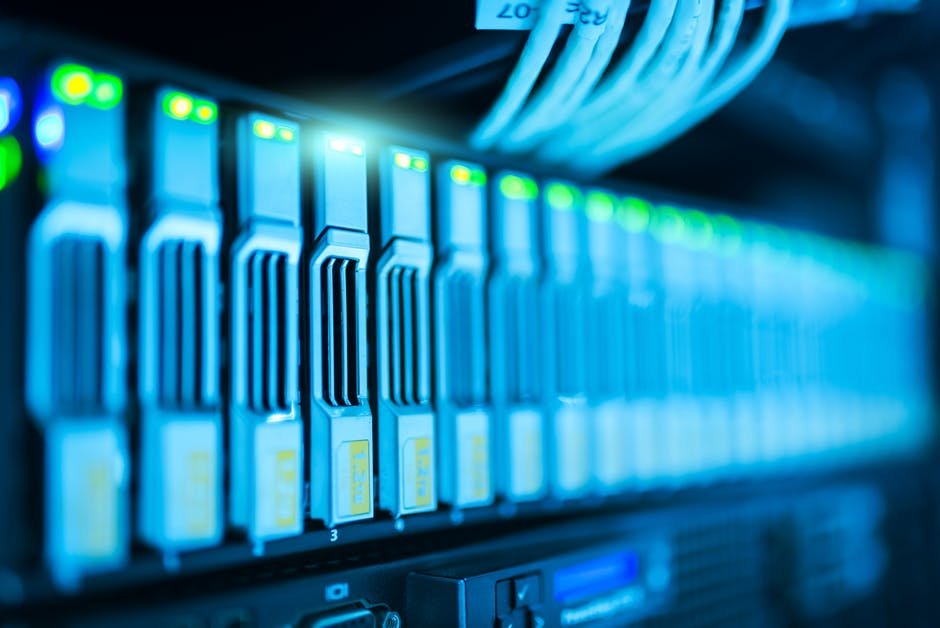
Computer network issues are common in Jacksonville, but most can be resolved with the right knowledge and tools.
In today’s digital age, a reliable computer network is essential for businesses, schools, and individuals in Jacksonville, Florida. However, network issues can disrupt productivity, cause frustration, and even lead to financial losses. Whether you’re a small business owner, an IT professional, or a home user, understanding common network problems and their solutions can save you time and money. In this article, we’ll explore 20 common Jacksonville computer network issues and provide practical tips to resolve them.
1. Slow Internet Speeds
Issue: Slow internet is one of the most frequent complaints in Jacksonville, especially in areas with high user density or outdated infrastructure.
Solution:
- Test your internet speed using tools like Speedtest.net.
- Restart your modem and router.
- Upgrade to a higher-speed plan or switch providers if necessary.
- Use a wired connection instead of Wi-Fi for critical tasks.
2. Intermittent Connectivity
Issue: Your network connection drops randomly, making it difficult to work or stream.
Solution:
- Check for loose cables or damaged hardware.
- Update your router’s firmware.
- Reduce interference by placing your router away from electronics like microwaves or cordless phones.
3. Weak Wi-Fi Signal
Issue: Poor Wi-Fi coverage in certain areas of your home or office.
Solution:
- Reposition your router to a central location.
- Use Wi-Fi extenders or mesh networks to boost coverage.
- Upgrade to a modern router with better range.
4. DNS Resolution Problems
Issue: Websites won’t load, or you see “DNS server not responding” errors.
Solution:
- Switch to a public DNS server like Google DNS (8.8.8.8) or Cloudflare DNS (1.1.1.1).
- Flush your DNS cache using the command
ipconfig /flushdnson Windows.
5. IP Address Conflicts
Issue: Two devices on the same network have the same IP address, causing connectivity issues.
Solution:
- Restart your router to reassign IP addresses.
- Manually assign static IP addresses to devices if needed.
6. Network Congestion
Issue: Too many devices are using the network simultaneously, slowing it down.
Solution:
- Limit the number of connected devices.
- Prioritize bandwidth for critical tasks using Quality of Service (QoS) settings on your router.
7. Outdated Network Hardware
Issue: Older routers or switches can’t handle modern internet speeds or device loads.
Solution:
- Upgrade to newer hardware that supports the latest standards (e.g., Wi-Fi 6).
8. Security Vulnerabilities
Issue: Unsecured networks are prone to hacking and data breaches.
Solution:
- Use strong passwords and enable WPA3 encryption on your Wi-Fi.
- Regularly update firmware and software to patch vulnerabilities.
9. Firewall Blocking Connections
Issue: Overly strict firewall settings can block legitimate traffic.
Solution:
- Adjust firewall rules to allow necessary traffic.
- Temporarily disable the firewall to test if it’s the cause.
10. Malware or Viruses
Issue: Malicious software can slow down your network or steal data.
Solution:
- Install and run reputable antivirus software.
- Regularly scan your devices for malware.
11. Incorrect Network Configuration
Issue: Misconfigured settings can prevent devices from connecting.
Solution:
- Double-check IP addresses, subnet masks, and gateway settings.
- Reset your router to factory settings if necessary.
12. Overheating Equipment
Issue: Routers or switches can overheat, causing performance issues.
Solution:
- Ensure proper ventilation for your devices.
- Clean dust from vents and fans regularly.
13. Cable Problems
Issue: Damaged or faulty Ethernet cables can disrupt connections.
Solution:
- Inspect cables for wear and tear.
- Replace damaged cables with high-quality ones.
14. ISP Outages
Issue: Your internet service provider (ISP) may experience outages.
Solution:
- Check your ISP’s status page or contact their support team.
- Consider having a backup connection, such as a mobile hotspot.
15. Bandwidth-Hogging Applications
Issue: Applications like video streaming or large downloads can consume too much bandwidth.
Solution:
- Use QoS settings to prioritize important traffic.
- Schedule large downloads for off-peak hours.
16. Duplicate SSIDs
Issue: Multiple networks with the same name can cause connection issues.
Solution:
- Rename your Wi-Fi network to a unique SSID.
- Ensure your devices connect to the correct network.
17. Outdated Drivers
Issue: Network adapter drivers that are out of date can cause connectivity problems.
Solution:
- Update your network adapter drivers through the device manager.
18. VPN Issues
Issue: VPNs can sometimes slow down or block your connection.
Solution:
- Switch to a different VPN server.
- Disable the VPN to test if it’s the cause.
19. Power Surges
Issue: Power surges can damage network equipment.
Solution:
- Use surge protectors or uninterruptible power supplies (UPS) for your devices.
20. Lack of IT Support
Issue: Many Jacksonville businesses and individuals lack access to professional IT support.
Solution:
- Partner with a local IT services provider for regular maintenance and troubleshooting.
Conclusion
Computer network issues are common in Jacksonville, but most can be resolved with the right knowledge and tools. By understanding these 20 common problems and their solutions, you can keep your network running smoothly and avoid costly downtime. For persistent or complex issues, don’t hesitate to seek help from a professional IT service provider in Jacksonville. A reliable network is the backbone of modern life, and investing in its health is always worth it.






